About three weeks ago, I went on a camping trip to Yosemite National Park.
I’d never been to Yosemite. Of course I’d heard whispers of its legendary beauty, and I’d probably seen pictures of it here and there. But prior to departing, I made a point not to ask Google to show me 5,000 images of its grandeur. I just went, to see what I would find.
And I was unprepared. Unprepared for the feast of sprawling, soaring sublimity that rushed into my eyeballs when we drove into Yosemite Valley. We were moving slowly in a long line of vehicles heading into the campsites, so I actually hopped out of the car to stand and just unapologetically gawk at the godly, cloud-shrouded cliffs and the most mythical of waterfalls that cascaded from above, seemingly beckoning me into wonderlands untold.
I was in heaven.
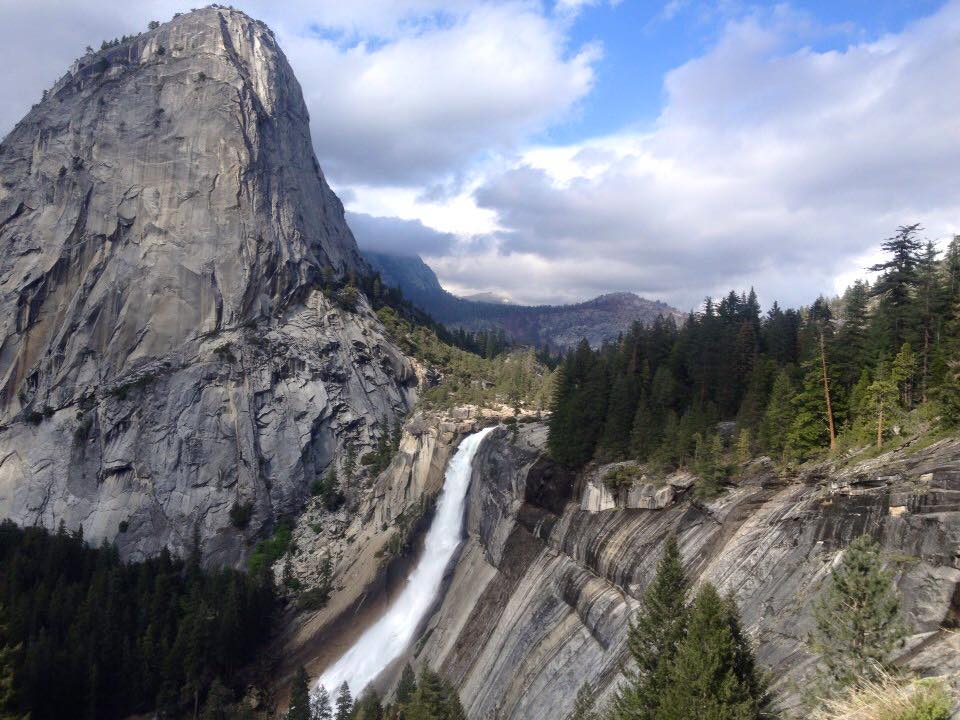
I stared. I gaped. I walked a bit. Stared some more. Gaped some more. Felt dizzy, mesmerized by what I was seeing. Took a few quick pictures. But mostly I gazed, feeling like I didn’t know where I was. I was seeing the place through the eyes of non-identity, through the eyes of a child. My mind was empty. I was there. It was all around me. And this place—when seen from the vantage point of one who has temporarily relinquished all preconception, all memory, all notions of the world as something understood, measured, and defined—was somehow self-evidently sacred.
When I eventually returned to our car, I immediately composed this poem:
i am the soaring peaks of Yosemite
the monolithic cliffs that disappear into clouded unknown
the fine waterfalls that drop like threads down sheer naked matter
the ancient redwoods with bark like tortoise shellsi am every boulder, pebble, and stone
the Platonic-ideal blue winking through mist above
the spiky towering giantsto ask if God exists is to miss the point
of the obvious divinity
the sacredness that stares us in the faceeverything exists, everything is sacred
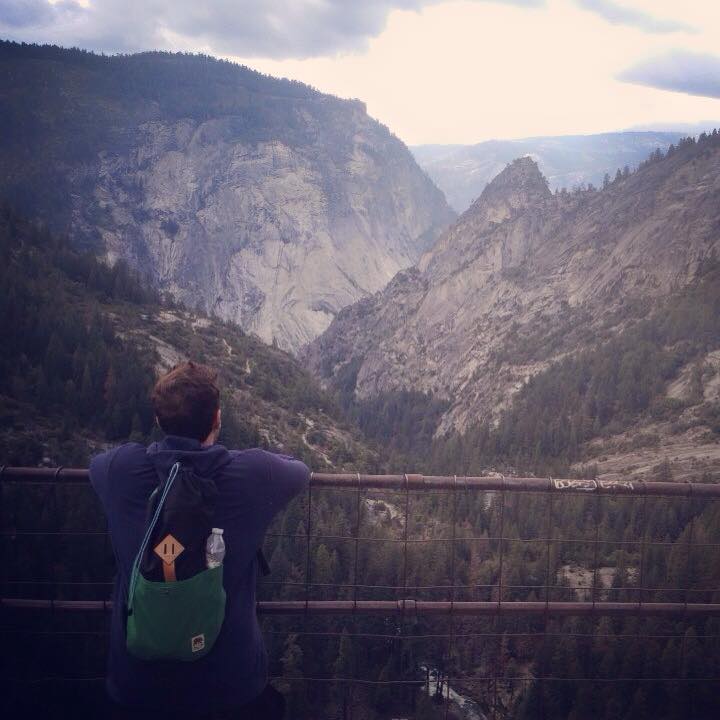
Agnostic Mysticism
You could say I was feeling myself, with “self” being defined as existence itself, this great process of being of which I am as much a part as trees, wind, stars.
Now, I’m sure the language I’ve used so far has suggested to some people that I am a “spiritual” person. I suppose you could say so, though I consider myself to possess a kind of secular spirituality—i.e. a deep and almost religious reverence for nature itself—that does not depend on belief in something supernatural. Okay, so what do I believe?
If I were forced to label my “religious” beliefs, I might call myself, among other things, an agnostic mystic. This is a term that the philosophical trickster Robert Anton Wilson used to describe himself. Regarding agnosticism, he wrote:
“It’s important to abolish the unconscious dogmatism that makes people think their way of looking at reality is the only sane way of viewing the world. My goal is to try to get people into a state of generalized agnosticism, not agnosticism about God alone, but agnosticism about everything. If one can only see things according to one’s own belief system, one is destined to become virtually deaf, dumb, and blind. It’s only possible to see people when one is able to see the world as others see it.”
Wilson saw absolute belief or certainty about anything as philosophical suicide—the death of the curious intellect. He felt that our perspectives and knowledge were always relative to our particular “reality tunnel,” and that admitting this was the key to realizing a much more tolerant and open viewpoint toward the worldviews of others. “Mysticism,” for Wilson, referred to a variety of methods of exploring consciousness and one’s nervous system via atypical states of mind. Of this he wrote:
“[Several hundred years ago,] science and mysticism were both based on experience, and they were both based on respect for the individual. The idea of science and mysticism was to go out and discover for yourself, find out what works, find out how the universe is actually structured, and how you relate to the structure of the universe. And so there were basically two areas of scientific exploration: the external and the internal. But they both pursued the same method, the experimental method.
[…]
A ritual is to the internal science what an experiment is to the external science.
Mysticism understood in that way is basically a branch of science, a branch of neuroscience, what Timothy Leary calls “neurologic” as distinguished from orthodox neurology which involves dissecting animals, or dissecting corpses or something. Neurologic is studying the nervous system directly by varying the parameters on which your nervous system functions.”
So, again, Wilson thought of mysticism as a variety of means of understanding the self and reality via direct experience. This emphasis on the primacy of lived experience connects Wilson with the early Taoists and Zen Buddhists, the phenomenologists, the British Romantics, the American Transcendentalists, the Beats, and numerous other schools of thought throughout history.
Like Wilson, I try to approach everything with an agnostic or anti-dogmatic stance, attempting to remain perpetually aware of the limited nature of my perspective and of the fact that even our most basic and cherished assumptions about reality might be misguided. I try to hold no beliefs absolutely, though I do think that there are many things that are, to borrow Wittgenstein’s term, “true enough” to act upon. I recognize that from my limited human perspective, I am unlikely to be able to ascertain absolute knowledge about anything (if such knowledge even exists).
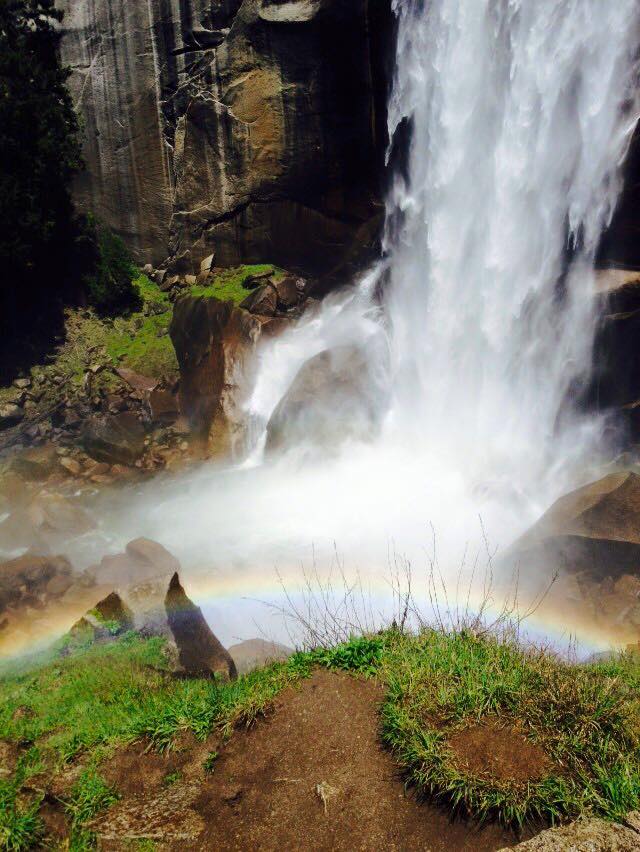
Yet I am also, like Wilson, an enthusiastic experimenter in the domain of attempting to better understand myself and my reality via atypical states of mind and direct experience. Direct experience has compelled me to sometimes refer to the world as sacred, heavenly, divine even. Because these potent terms are, for me, the only sort of words that even begin to suggest the essence of my most significant experiences on Earth. This probably confuses some people or seems self-contradictory, untenable.
But, when I’m really in it—when I’ve really let go of my identity and preconceptions and lost myself in a sensory experience of the world, especially of a wide-open, natural environment—I perceive the world as something more than the sum of its parts. This is often accompanied by a feeling of a dissolution of boundaries, a lack of separation between my existence and the whole of existence, a unity that can only be described as “mystical.”
And in these moments, I see nature, as William Blake put it, as “imagination itself.” The natural world appears as an infinitely intricate dream that has somehow been manifested as a tangible playground. I feel an expansive awe, a sense of arriving at a tremendous mystery, an unsolvable riddle. And this enigma, this mystery—this ultimate inscrutability of nature as we experience it—is, for me, so utterly profound and so damn marvelous that I feel compelled to shout of its divinity, its sacredness. I don’t feel that such words should be reserved for those who believe in a supernatural reality or deity.
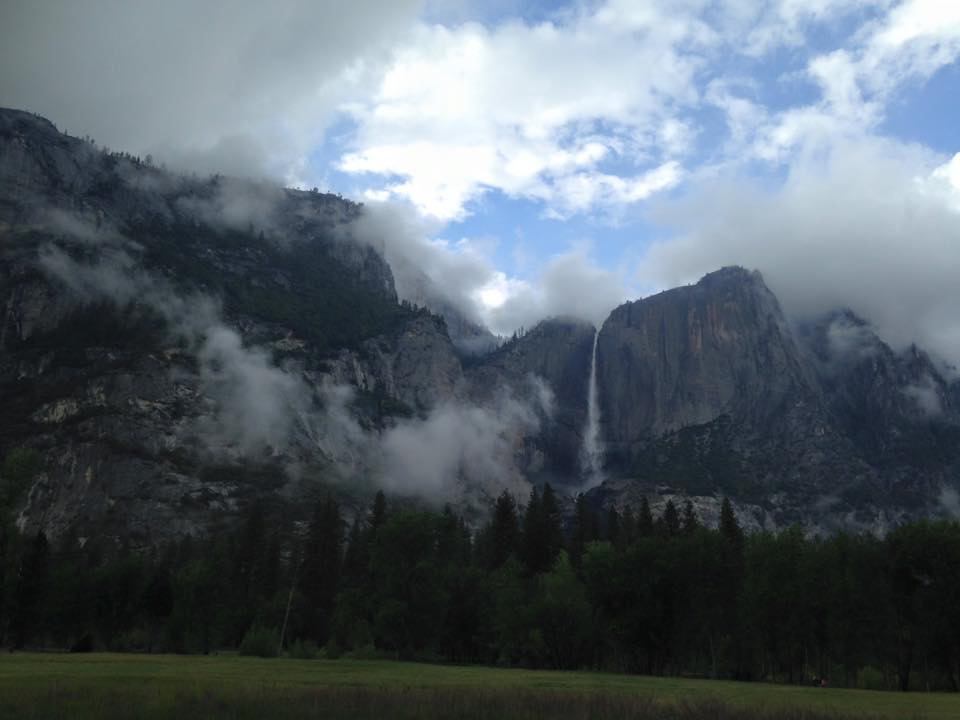
Religion as Metaphor
The brilliant comparative mythologist Joseph Campbell would have said that all religions are metaphors pointing to this same mystery. “All religions are true, but none are literal,” he once said. He elaborates on this idea in his indispensable book, Thou Art That: Transforming Religious Metaphor:
“Half the people in the world think that the metaphors of their religious traditions, for example, are facts. And the other half contends that they are not facts at all. As a result we have people who consider themselves believers because they accept metaphors as facts, and we have others who classify themselves as atheists because they think religious metaphors are lies.”
Campbell theorized that the world’s religions—at least the major ones—were mythologies intended to provide a meaningful, comprehensible narrative to anchor/stabilize a culture, to communicate traditional values, and to point, via symbolism, to the inscrutable nature of existence with which all humans have grappled. Campbell thought that to ask whether or not “God” exists or whether/which religion is true is to miss the point—that “God,” “Allah,” “Buddha-nature,” “Tao,” etc. are all mythological representations of the impenetrable mystery of being.
Regardless of whether this theory is true, it’s certainly an interesting theory. And it just kind of makes intuitive sense that all earthly religions (and probably most/all other aspects of culture) are complex structures that humans have erected to cope with and make sense of the fundamental mystery that has concerned mankind since our early ancestors first wondered, “Where and how and why and what is all this?”
Anyway, Campbell thought that the crux of “spirituality” consisted in experiencing and recognizing this single, eternal mystery:
“I think it’s important to live life with a knowledge of its mystery, and of your own mystery.”
In a related vein, he wrote:
“People say that what we’re all seeking is a meaning for life. I don’t think that’s what we’re really seeking. I think what we’re seeking is an experience of being alive, so that our life experiences on the purely physical plane will have resonance within our own innermost being and reality, so that we actually feel the rapture of being alive. That’s what it’s all finally about.”
This rapture is, I think, what one encounters in a deep realization of the mystery and/or in a mystical experience of unity with said mystery. Campbell suggests that we’re not actually seeking “a meaning for life,” but rather this experience.
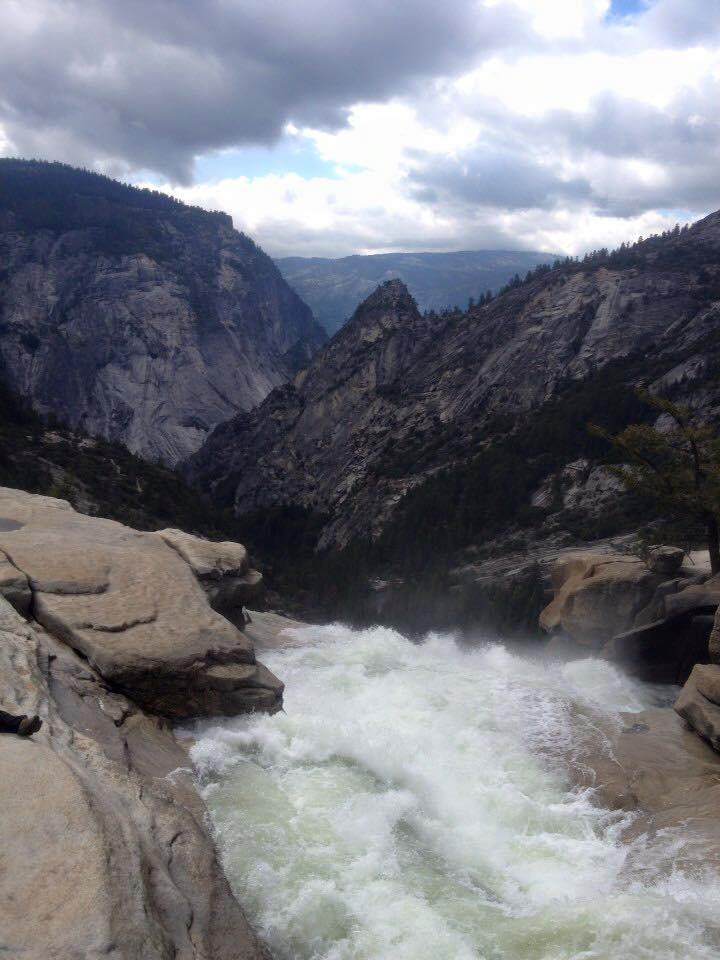
Ironically, I think that once one has had such an experience, the “meaning of life” seems self-evident. One sees that simply to be alive, to feel, to experience is the meaning. Life needs no further justification. Simply to have this human experience—to see its peaks and valleys and run the gamut of feelings from despair to ecstasy—is enough. Alan Watts once expressed something similar:
“The meaning of life is just to be alive. It is so plain and so obvious and so simple. And yet, everybody rushes around in a great panic as if it were necessary to achieve something beyond themselves.”
Infant Mind
If “the meaning of life is just to be alive,” as Watts insists—and if we’re all just seeking an experience of being really, vitally alive, as Campbell suggests—what the hell should we do to discover such an experience, to fully appreciate experience itself?
There are probably innumerable methods. Fasting, meditation, deliberate psychedelic exploration, aesthetic contemplation, chanting, ecstatic dance, extended time in nature, and various other rituals are examples of methods that have been employed throughout history to reach an atypical state of consciousness in which one is more capable of experiencing spiritual rapture. Such practices exemplify what Robert Anton Wilson meant when he referred to internal experiments with consciousness.
I would argue that what many or all of these practices have in common is that they can serve as means of arriving at what Alan Watts called the “infant mind,” a state somewhat reminiscent of the Zen Buddhist idea of “beginner’s mind,” though not quite the same thing.
“Infant mind” refers, as you might guess, to a state in which one perceives the world as an infant would, in which one relinquishes expectation, memory, identity, preconception, and even one’s idea of a world of separate objects and consequently perceives existence in a radically different way. In his stelliferous book, Tao: The Watercourse Way, wily ol’ Alan elaborates a beautiful explanation of how one might access an infant-like state of mind:
“You are asked — temporarily, of course — to lay aside all your philosophical, religious, and political opinions, and to become almost like an infant, knowing nothing. Nothing, that is, except what you actually hear, see, feel, and smell. Take it that you are not going anywhere but here, and that there never was, is, or will be any other time than now. Simply be aware of what actually is without giving it names and without judging it, for you are now feeling out reality itself instead of ideas and opinions about it. There is no point in trying to suppress the babble of words and ideas that goes on in most adult brains, so if it won’t stop, let it go on as it will, and listen to it as if it were the sound of traffic or the clucking of hens.
Let your ears hear whatever they want to hear; let your eyes see whatever they want to see; let your mind think whatever it wants to think; let your lungs breathe in their own rhythm. Do not expect any special result, for in this wordless and idea-less state, where can there be past or future, and where any notion of purpose? Stop, look, and listen . . . and stay there awhile . . .”
I’ll also add another, similar description, one which Watts provided in one of his many lectures:
“And just as you have to stop talking to hear what others have to say, you have to stop thinking to find out what life is about. And the moment you stop thinking, you will come into immediate contact with what Korzybski called, so delightfully, ‘the unspeakable world.’
The most ordinary sights and sounds and smells, the texture of shadows on the floor in front of you—all of these things, without being named, and saying ‘that’s a shadow,’ ‘that’s red,’ ‘that’s brown,’ ‘that’s somebody’s foot’—when you don’t name things any longer, you start seeing them.”
So Alan suggests that it’s possible, through a bit of effort, or perhaps, more aptly, surrender, to enter an infant-like state of mind. One simply directs one’s awareness to the everyday objects and sensory data of the present moment and attempts to let go of the impulse to name, to categorize, to see the world as a collection of separate, pre-defined things. Concurrently, one lets one’s opinions and identity just kind of slip away, recognizing that all one needs to be is an empty vessel, allowing the world to fill oneself.
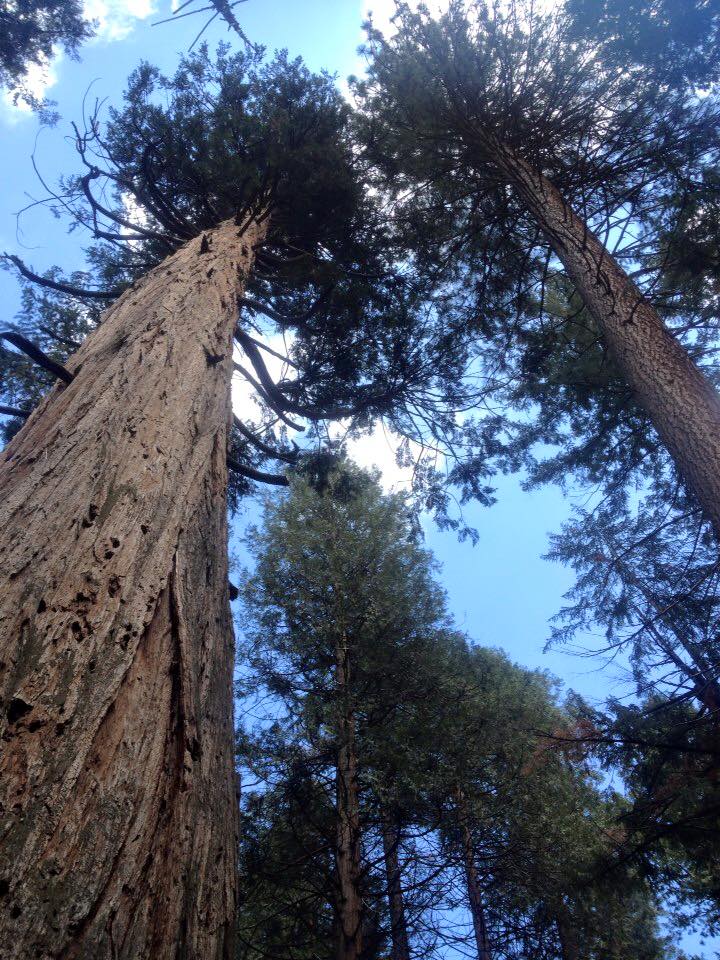
This, I humbly suggest, is one path to recognizing, in a moment of awe, the “unspeakable world,” the ever-present mystery—the ineffable, overflowing marvel-fountain that is the very world you’re occupying right now. I think that, for some, infant mind is something that comes fairly naturally. It might even be something you’ve already been doing without knowing that someone had called it “infant mind.”
For others, everything I’ve just said might seem like a foreign language—some jargon-laden hippie-speak about realms far-removed from all that seems possible or sensible. But maybe said folks are still curious. The good news is that once one enters an infant-like state of mind just once, it seems far easier to re-access the state in the future.
In order to get there the first time, one might look into those methods I listed above. I think that psychedelics are particularly effective, but before you ever rush off to Yosemite to tango with psilocybin or something similar, watch this video and this video and do a lot of research, especially about set and setting.
Meditation is likewise quite effective, in my experience. Whether sitting meditation, walking meditation, or mindfulness meditation, I would argue that meditation prepares the mind to let go of concepts and attachments and to “surrender” to pure experience. Here’s a beautiful guide to meditation by my friend, Martijn, if you’re intrigued.
Lastly, I’ll note that spending extended amounts of time in nature has proven useful for me in this regard. Natural settings invariably seem to coax me into a more childlike state of mind, as I lose myself in the rich details of whatever setting. Pairing psychedelics with extended time in nature, when done responsibly, can multiply this effect and may well be the most reliable means of reaching an unadulterated state of infant-mind rapture. For those interested, here’s an excellent essay on psychedelics.
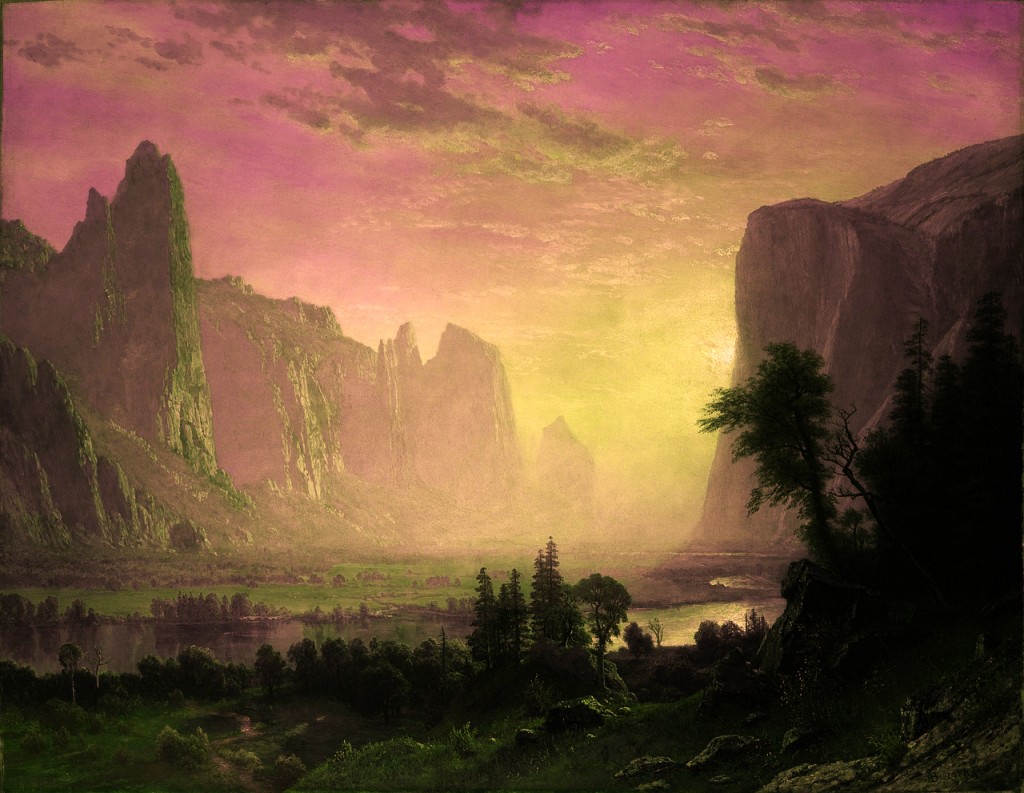
Photo Credit: Pixabay
The World Surrenders
The rest of that weekend in Yosemite was idyllic. And I wouldn’t just say that. It was one of the choicest camping trips of my short life. Of course there were the inevitable less-than-ideal aspects—imperfect sleep, sunburn, soreness, minor disputes with my girlfriend, etc.—but I was able to accept these ostensible downsides and to nonetheless greatly enjoy our time.
The day after arriving, we embarked on what turned out to be an eight-hour hike that took us up imposing cliffs, through silent, wise woods, and past two waterfalls that commanded admiration. Throughout the hike, I allowed myself to slip into an infant-like state, observing with joy and curiosity the wide vistas and fascinating particulars of the territory.
At one point, after closing my eyes and focusing on my breath for a minute or so, I ogled the charging, proud Nevada Falls and seemed almost to float backwards out of myself, my jubilant inner-stuff expanding beyond its creature-container to commune with the free wind. Tears came to my eyes, and I knew what John Muir meant when he said that “going to the mountains is going home.”
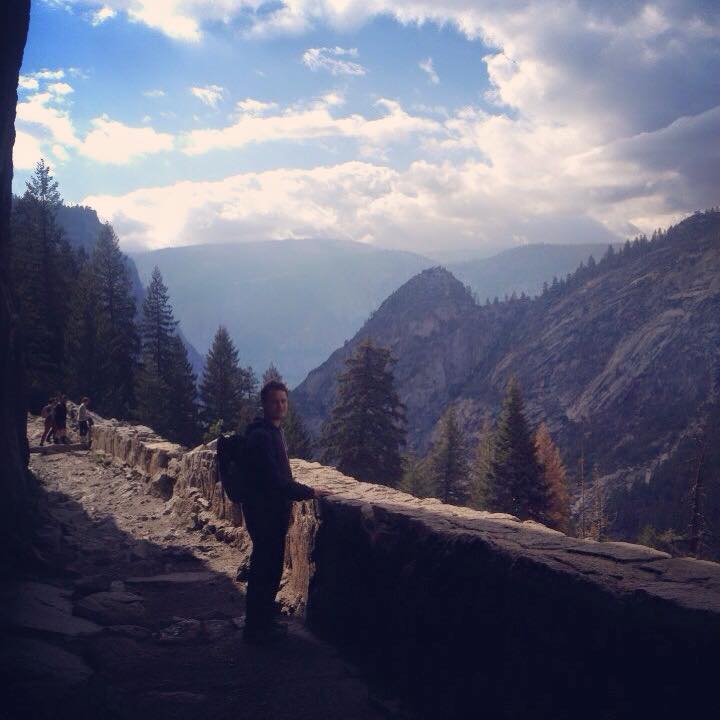
I had let go of everything, and because of that, paradoxically, everything suddenly belonged to me. The world surrendered to my empty, non-desiring mind, and the world was enough. More than enough. Erupting with enough-ness.
In that moment, as in many moments prior, I felt vastly blessed to be here, to be breathing, to be living out this adventure. I hoped never to forget that all is a gift, rare and precious. Then I turned and continued along the path.
A version of this essay was first published at HighExistence.
About Jordan Bates
Jordan Bates is a Lover of God, healer, mentor of leaders, writer, and music maker. The best way to keep up with his work is to join nearly 7,000 people who read his Substack newsletter.

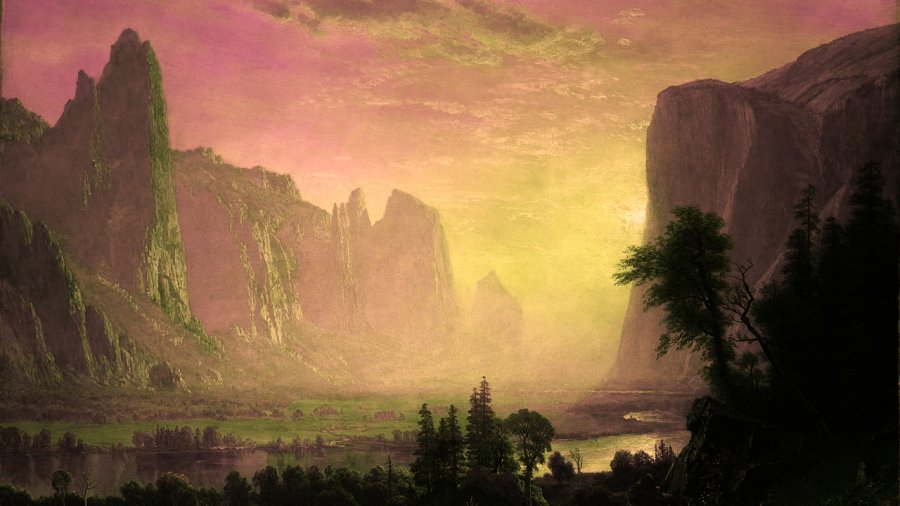
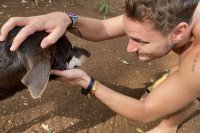
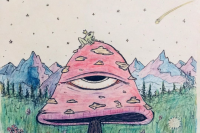
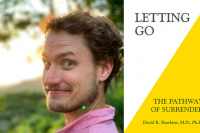
Yosemite is one of those places that serves as a reminder of the absolute miracle it takes to be alive, here, right now.
I am a winning lottery ticket, as is anyone who is alive or has been alive for even one moment.
Excellent post Jordan.
“I am a winning lottery ticket, as is anyone who is alive or has been alive for even one moment.” yes! i always love considering things from the point of view of the astronomical odds against my sitting here right now. very rare link: https://passionatefreedom.wordpress.com/2011/04/07/life-should-be-a-celebration/ that link goes to the first blog i ever had. you’ve reminded me of a post i once wrote there that feels pretty amateurish now in some ways but suggested that we are a cosmic rarity or jewel and should celebrate life. i still agree with the later part for sure. 🙂 thanks, as always,… Read more »
Really nice piece, Jordan. Appreciate the confessional tone.
hadn’t realized i took on a confessional tone, ryan, hah! interesting that you say that. i guess i did aim for something more personal, what with the story and poem and all. thank you for reading, amigo. <3
Maybe “confessional” wasn’t the best word. But, yeah, more personal.
I love this. Thank you.